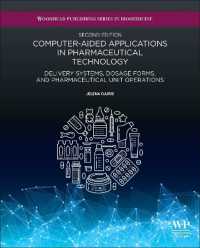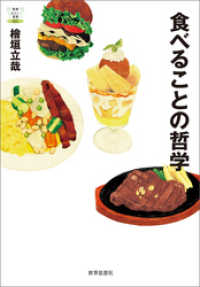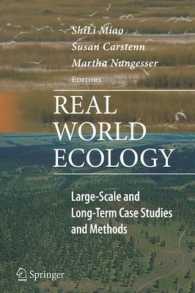- ホーム
- > 洋書
- > 英文書
- > Politics / International Relations
基本説明
A clearly written and informed overview of the role the EU has played in the international trade negotiations on agriculture.
Full Description
Agriculture has a small, and declining, importance in employment and income generation within the EU, but a political importance well beyond its economic impact. The EU's common agricultural policy (CAP) has often been the source of conflict between the EU and its trade partners within first the GATT, and then the WTO. In the Doha Round agriculture was again a sticking point, resulting in setbacks and delays. The position of the EU is pivotal. Due to the comparatively limited competitiveness of the EU's agricultural sector, and the EU's institutionally constrained ability to undertake CAP reform, the CAP sets limits for agricultural trade liberalization blocking progress across the full compass of the WTO agenda. Therefore, the farm trade negotiation, with the CAP at its core, is the key to understanding the dynamics of trade rounds in the WTO. The book, written by a political scientist and an agricultural economist, applies theory on ideas to explain how the agricultural sector came to be included in the Single Undertaking that resulted in the Uruguay Round agreements, and how this led to a dynamic interplay between CAP reform and the possibility of further agricultural trade liberalization within the WTO, thereby providing useful insights into international trade relations.
Contents
1. An Introduction to Agricultural Exceptionalism in EU Farm Policy and the GATT ; 2. Ideas, Institutions and Policy: a Theoretical Framework ; 3. WTO Rules for Agricultural Trade: GATT 1947 and the URAA ; 4. Explaining the erosion of agricultural exceptionalism in the Uruguay Round ; 5. Dispute Settlement and its Implication for Agricultural Exceptionalism ; 6. EU Agricultural Institutions and the CAP: Coping with GATT/WTO ; 7. Setting the Limits: CAP Reform and WTO Farm Trade Rules ; 8. Beyond Doha: Conclusions and Prospects








